Freemen-of-the-land (the freemen movement are a loose group of individuals who believe that they are bound by statute laws only if they consent to those laws. They believe that they can therefore declare themselves independent of the government and the rule of law, holding that the only "true" law is their own interpretation of "common law". The Federal Bureau of Investigation (FBI) classifies freemen as sovereign citizen extremists and domestic terrorists. Learn more at: https://en.wikipedia.org/wiki/Freemen_on_the_land
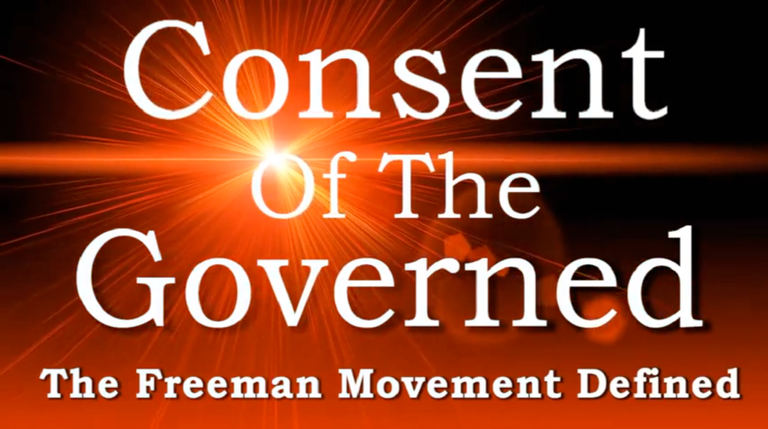
We hold these truths to be self-evident, that all men are created equal, that they are endowed by their Creator with certain unalienable Rights, that among these are Life, Liberty and the pursuit of Happiness. The Bill of Rights, the first ten amendments to the United States Constitution, add to the Constitution specific guarantees of personal freedoms and rights, clear limitations on the government's power in judicial and other proceedings, and explicit declarations that all powers not specifically delegated to Congress by the Constitution are reserved for the states or the people. The concepts codified in these amendments are built upon those found in several earlier documents, including the Virginia Declaration of Rights and the English Bill of Rights, along with earlier documents such as Magna Carta (1215). Read about the history at: https://en.wikipedia.org/wiki/United_States_Bill_of_Rights
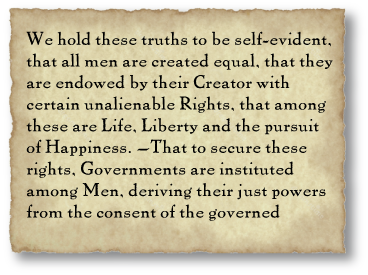
Magna Carta Libertatum (Medieval Latin for "the Great Charter of the Liberties"), commonly called Magna Carta originated as an unsuccessful attempt to achieve peace between royalist and rebel factions in 1215, as part of the events leading to the outbreak of the First Barons' War. According to the Whig interpretation of history, the Glorious Revolution was an example of the reclaiming of ancient liberties. Reinforced with Lockean concepts, the Whigs believed England's constitution to be a social contract, based on documents such as Magna Carta, the Petition of Right, and the Bill of Rights. Learn about the Magna Carta at: https://en.wikipedia.org/wiki/Magna_Carta
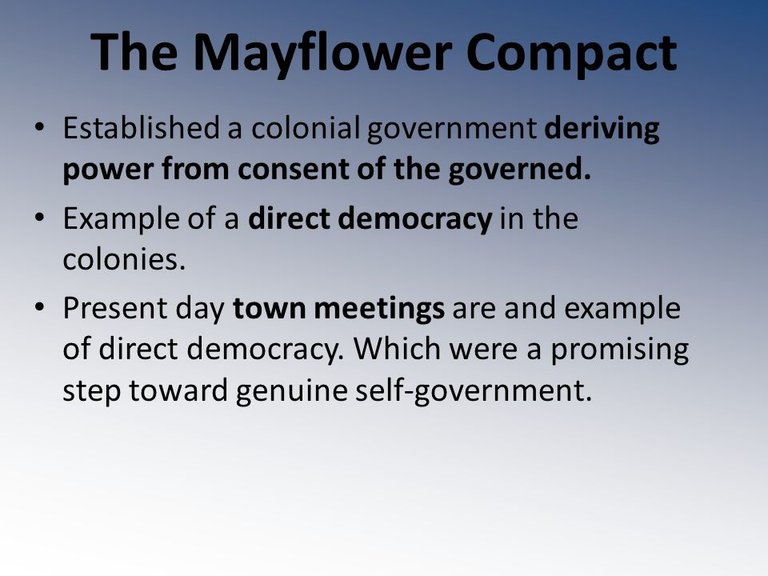
The Mayflower Compact, signed by 41 English colonists on the ship Mayflower on November 11, 1620, was the first written framework of government established in what is now the United States. The compact was drafted to prevent disagreements/differences of opinion amongst Puritans and non-separatist Pilgrims who had landed at Plymouth a few days earlier. Read about the history at: https://en.wikipedia.org/wiki/Mayflower_Compact
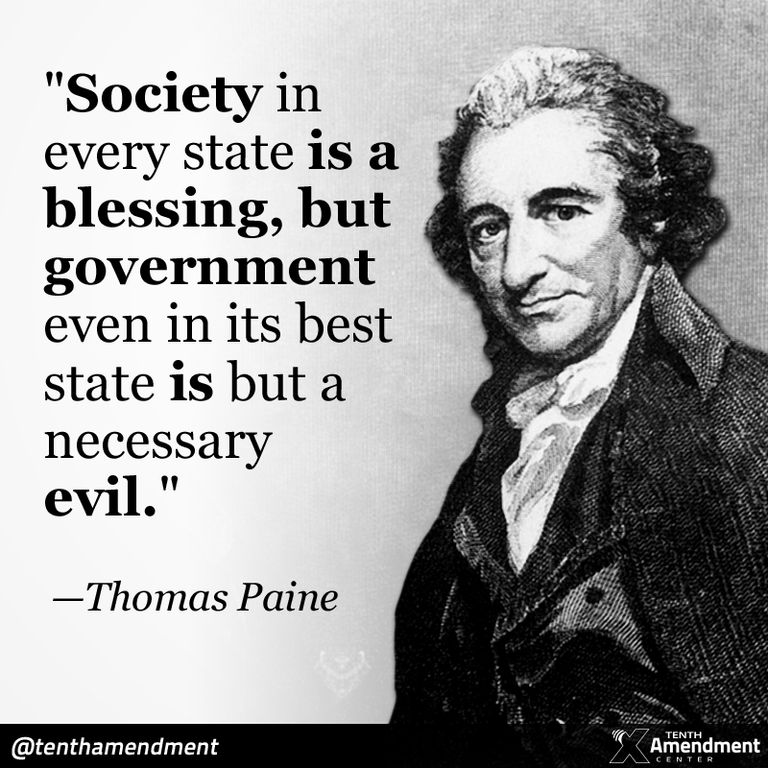
To declare the inherent rights of Virginians, and mankind in general, the Virginia Declaration of Rights is a document drafted in 1776 to proclaim the inherent rights of men, including the right to reform or abolish "inadequate" government. It influenced a number of later documents, including the United States Declaration of Independence (1776) and the United States Bill of Rights (1789). A DECLARATION OF RIGHTS made by the representatives of the good people of Virginia, assembled in full and free convention which rights do pertain to them and their posterity, as the basis and foundation of government. The Virginia Declaration of Rights was one of the earliest documents to emphasize the protection of individual rights, rather than protecting only members of Parliament or consisting of simple laws that can be changed as easily as passed. For instance, it was the first declaration of rights to call for a free press.
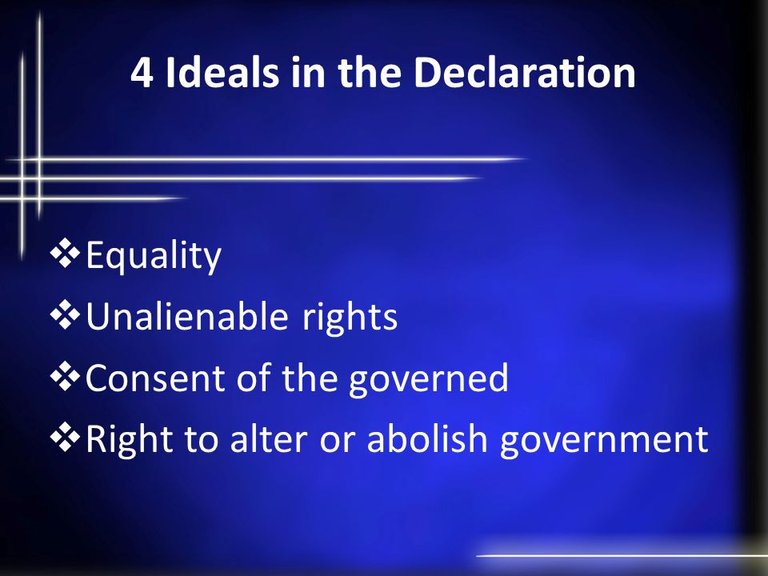
Articles 1–3, of the Virginia Declaration of Rights, address the subject of rights and the relationship between government and the governed. Article 1 states that "all men are by nature equally free and independent, and have certain inherent rights of which . . . they cannot deprive or divest their posterity; namely, the enjoyment of life and liberty, with the means of acquiring and possessing property, and pursuing and obtaining happiness and safety," a statement later made internationally famous in the first paragraph of the U.S. Declaration of Independence, as "we hold these truths to be self-evident, that all men are created equal, and are endowed by their Creator with certain unalienable rights, that among these are Life, Liberty and the pursuit of Happiness." Articles 2 and 3 note the revolutionary concept that "all power is vested in, and consequently derived from, the people..." and that "whenever any government shall be found inadequate or contrary to these purposes, a majority of the community hath an indubitable, unalienable, and indefeasible right to reform, alter or abolish it, in such manner as shall be judged most conducive to the public weal."
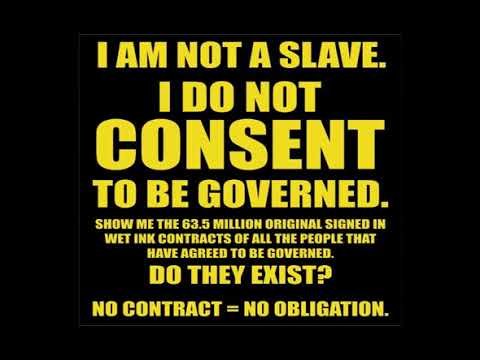
Article 4, of the Virginia Declaration of Rights, asserts the equality of all citizens, rejecting the notion of privileged political classes or hereditary offices – another criticism of British institutions such as the House of Lords and the privileges of the peerage: "no set of men, are entitled to exclusive or separate emoluments or privileges from the community, but in consideration of public services; which, not being descendible, neither ought the offices of magistrate, legislator, or judge be hereditary." Articles 5 and 6 recommend the principles of separation of powers and free elections, "frequent, certain, and regular" of executives and legislators: "That the legislative and executive powers of the state should be separate and distinct from the judicative; and, that the members of the two first...should, at fixed periods, be reduced to a private
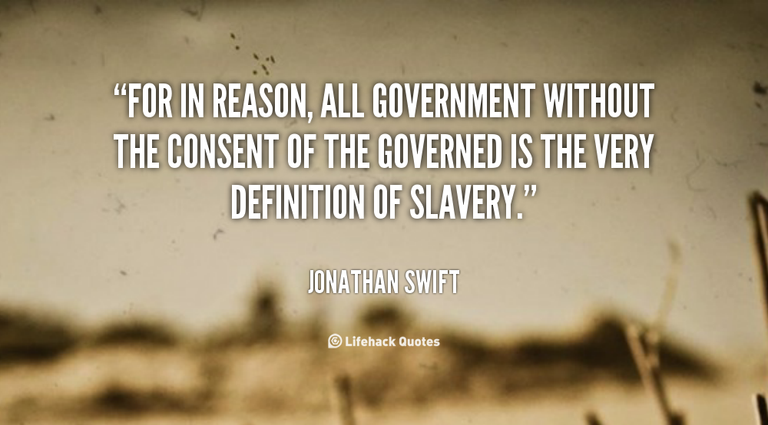 station, return into that body from which they were originally taken...by frequent, certain, and regular elections."
station, return into that body from which they were originally taken...by frequent, certain, and regular elections."
Articles 7–16, of the Virginia Declaration of Rights, propose restrictions on the powers of the government, declaring the government should not have the power of suspending or executing laws, "without consent of the representatives of the people"; establishing the legal rights to be "confronted with the accusers and witnesses, to call for evidence in his favor, and to a speedy trial by an impartial jury of his vicinage," and to prevent a citizen from being "compelled to give evidence against himself." protections against "cruel and unusual punishments",[15] baseless search and seizure,[16] and the guarantees of a trial by jury, freedom of the press, freedom of religion ("all men are equally entitled to the free exercise of religion"), and "the proper, natural, and safe defense of a free state" rested in a well regulated militia composed of the body of the people, trained to arms, that standing armies in time of peace, should be avoided as dangerous to liberty; Article 8 protects a person against "being deprived of his liberty except by the law of the land" which later evolved into the due process clause in the federal Bill of Rights. Article 12 is the first ever codification of the right to a free press and was an important precursor to the First Amendment to the United States Constitution. Be more like Virginians and learn more at: https://en.wikipedia.org/wiki/Virginia_Declaration_of_Rights
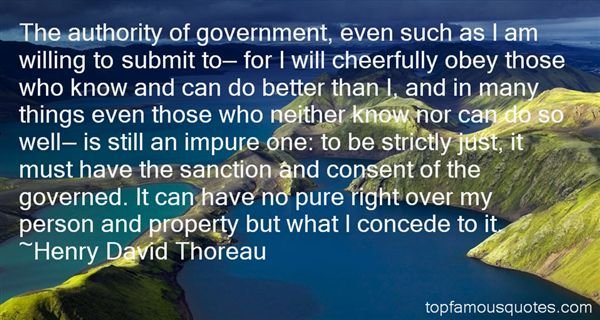
The "Consent of the governed" is a phrase found in the United States Declaration of Independence. Using thinking similar to that of English philosopher John Locke, the founders of the United States believed in a state built upon the consent of "free and equal" citizens; a state otherwise conceived would lack legitimacy and Rational-legal authority."The legislative and executive power used by government to protect property is nothing except the natural power of each man resigned into the hands of the community…and it is justified merely because it is a better way of protecting natural right than the self-help to which each man is naturally entitled." Learn more about the history surrounding our nations struggle for individual rights at: https://en.wikipedia.org/wiki/United_States_Declaration_of_Independence
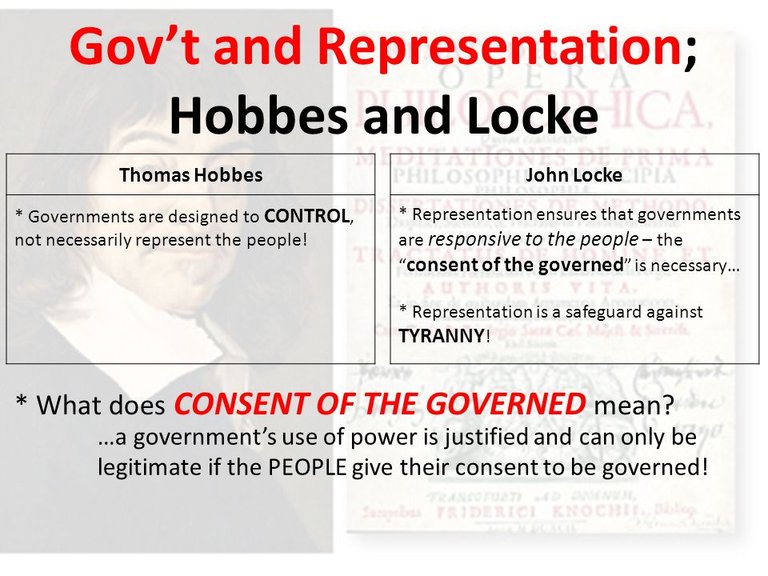
Article 21 of the United Nation's 1948 Universal Declaration of Human Rights states that "The will of the people shall be the basis of the authority of government". In political philosophy, the phrase consent of the governed refers to the idea that a government's legitimacy and moral right to use state power is only justified and lawful when consented to by the people or society over which that political power is exercised. Read about Consent of the Governed at: https://en.wikipedia.org/wiki/Consent_of_the_governed
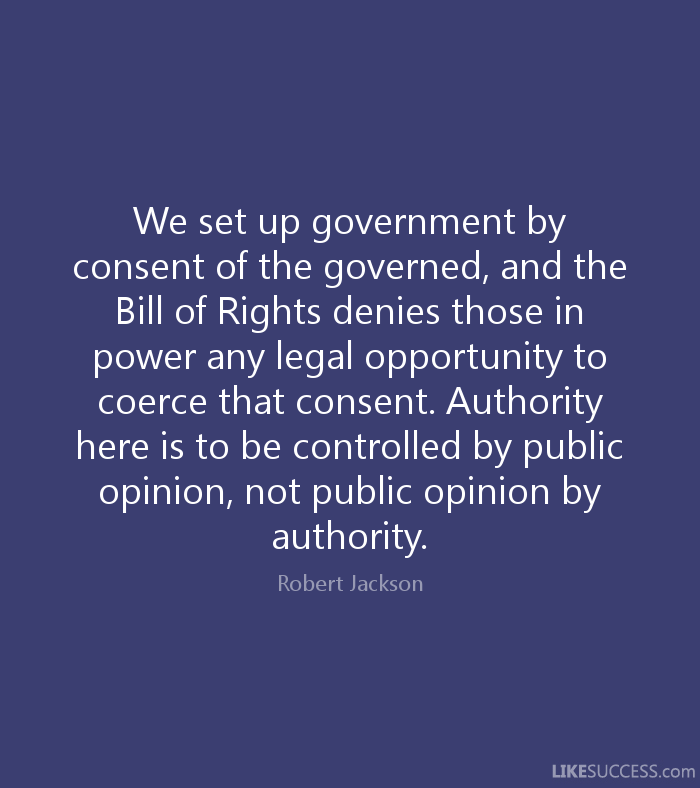
"The conditions for the existence of a political society have less to do with force and fear of coercion than with the members' mutual recognition of a good common to themselves and others, although it may not be consciously expressed as such. Thus for the conditions for any civil combination to disappear through resistance to a despotic government or disobedience to law would require such a disastrous upheaval as to be unlikely in all but the most extreme circumstances in which we might agree that the price would be too high to pay, yet sufficiently rare to allow us to acknowledge that there would ordinarily be a moral duty to act to overthrow any state that did not pursue the common good." Research the Constitution at: https://en.wikipedia.org/wiki/United_States_Constitution
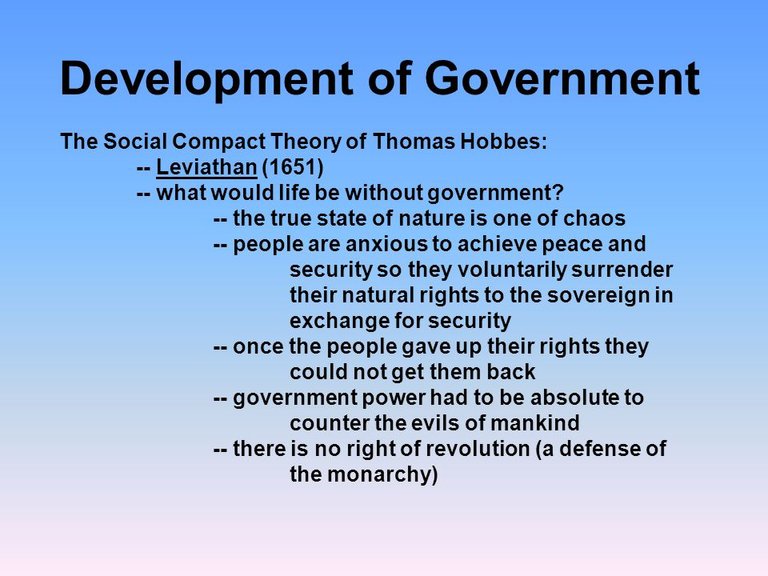
Regarding the Constitution of the United States, the compact theory holds that the country was formed through a compact agreed upon by all the states, and that the federal government is thus a creation of the states. Consequently, states should be the final arbiters over whether the federal government had overstepped the limits of its authority as set forth in the compact. Compact theory refers to two theories related to the development of federal constitutions. In the United States, it differs from the contract theory in that it favored the rights of states over those of the Federal Government. Learn more at: https://en.wikipedia.org/wiki/Compact_theory
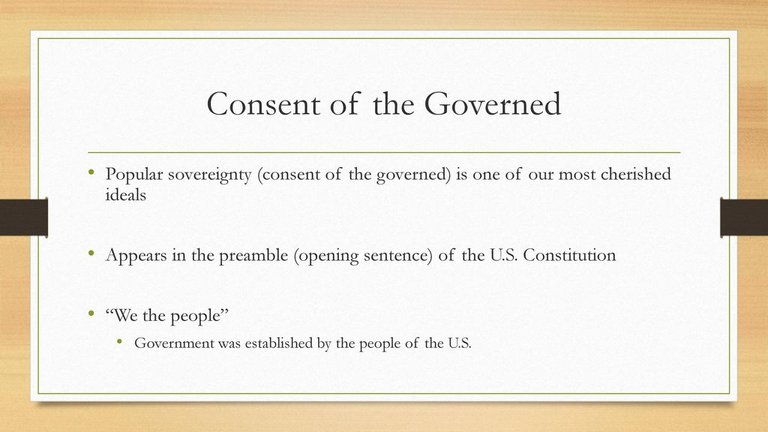
Modern conceptions of rights often emphasize liberty and equality as among the most important aspects of rights, for example in the American Revolution. The divine right of kings, or God's mandate, is a political and religious doctrine of royal and political legitimacy. It asserts that a monarch is subject to no earthly authority, deriving the right to rule directly from the will of God. The king is thus not subject to the will of his people, the aristocracy, or any other estate of the realm. It implies that only God can judge an unjust king and that any attempt to depose, dethrone or restrict his powers runs contrary to the will of God and may constitute a sacrilegious act. It is often expressed in the phrase "by the Grace of God", attached to the titles of a reigning monarch. Historically, many notions of rights were authoritarian and hierarchical, with different people granted different rights, and some having more rights than others. For instance, the right of a father to respect from his son did not indicate a right for the son to receive a return from that respect; and the divine right of kings, which permitted absolute power over subjects, did not leave a lot of room for many rights for the subjects themselves. Read more at: https://en.wikipedia.org/wiki/Divine_right_of_kings
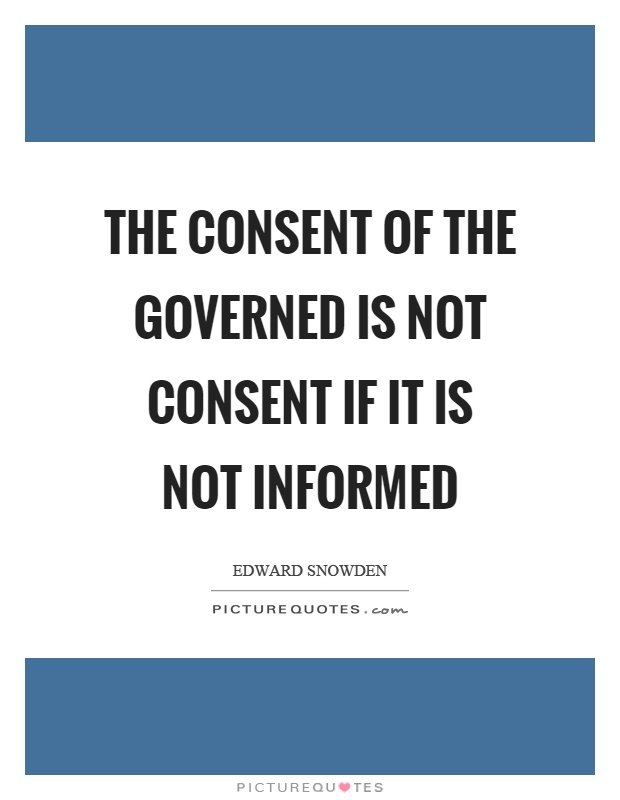
Read John Locke's "About an Essay concerning Human Understanding," and read the Constitution of the United States of America and the Declaration of Independence. Knowledge is Power.
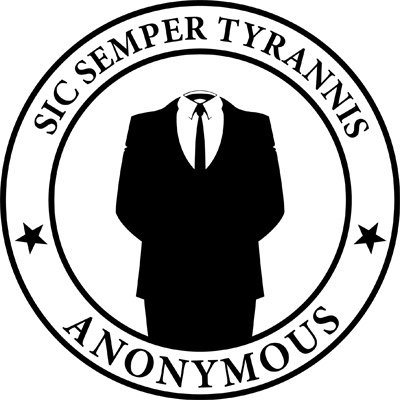
https://www.facebook.com/thefreethoughtprojectcom/videos/2056387157914874/